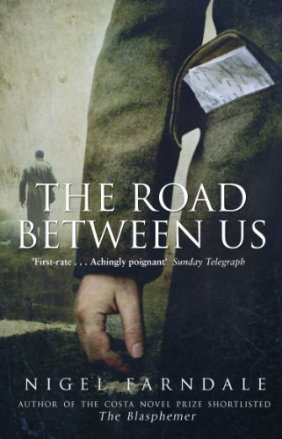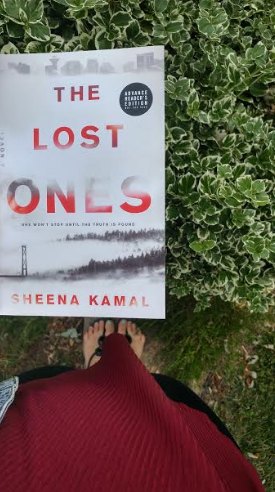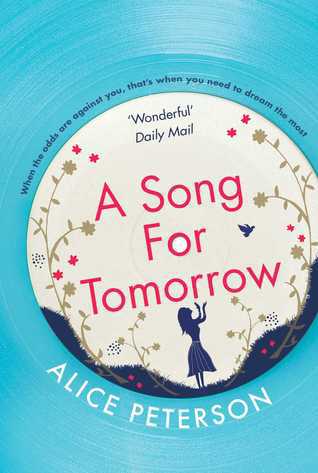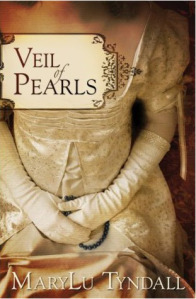Before I begin, I just found a cache of 65 comments in the trash of my website. Thanks for that, web site. I’m so sorry to have missed them. So if didn’t respond, I wasn’t being rude; I just didn’t know they were there. I have responded to all of them now.
Also, I completely missed my blogiversary. This little ol’ blog turned six on June 16.
And now, on to our main topic…
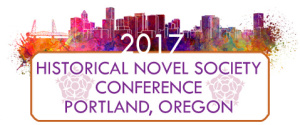 At the end of June, I had the pleasure of attending the Historical Novel Society conference in Portland Oregon. It was hands-down the best, most fun conference I’ve ever been to. From the second I stepped into the hotel, I saw people I knew or who knew me, and it felt like a homecoming. These truly are my people. It was humbling and immensely gratifying to have so many people approach me, saying they loved my books and/or had seen me speak somewhere and learned something. I have to say that for the first time I felt like, maybe not a celebrity, but a rising star. I was certainly encouraged to continue on my journey as a historical fiction author!
At the end of June, I had the pleasure of attending the Historical Novel Society conference in Portland Oregon. It was hands-down the best, most fun conference I’ve ever been to. From the second I stepped into the hotel, I saw people I knew or who knew me, and it felt like a homecoming. These truly are my people. It was humbling and immensely gratifying to have so many people approach me, saying they loved my books and/or had seen me speak somewhere and learned something. I have to say that for the first time I felt like, maybe not a celebrity, but a rising star. I was certainly encouraged to continue on my journey as a historical fiction author!
I have to say I was thrilled by the diversity in the program offerings. In addition to panels on craft and dedicated to certain time periods, there were panels on everything from gender fluidity in Shakespeare’s England and race/minority viewpoints in historical fiction to LBGT characters in history and including women’s stories in history. It was encouraging in an increasingly polarized culture to see that within the Society, authors are talking about all forms of inclusiveness. On a similar note, there were workshops and koffee klatches for both traditional and indie authors and both forms of publishing (as well as being a hybrid author) were talked about on panels. Here again, I took comfort from the open-mindedness I experienced.
Honestly, there were so many great choices, it was often hard to decide which workshop to attend. (Note to HNS: Please bring back the recording of sessions. I would buy every single one.) Of the ones I attended (that I wasn’t on), the one I enjoyed the most were Writing in Multiple Genres, which reaffirmed that you can and perhaps should write in multiple areas, especially if you can make your fiction and non-fiction relate (which mine do, whew!)
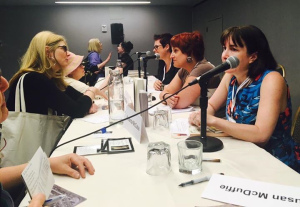
From Bustles to Suffragettes panel
I was on two panels and lead a packed koffee klatch. The first panel was “From Bustles to Suffragettes: Writing Victorian Era & Gilded Age Fiction” with Stephanie Carroll, Leanna Renee Hieber, Amanda McCabe (Laurel McKee) and moderator Susan McDuffie. I had corresponded with these ladies online but had never met most of them until the conference. Stephanie and I were roommates at the conference (we met at the 2015 conference in Denver) and Leanna quickly became my new favorite person. (When you share a love of Victoria Woodhull and outspoken Victorian women, I guess this is bound to happen!) We certainly shared a feministic vibe and were two of the more passionate panelists in our answers. We all worked really well together and I’m very glad to have met all these ladies.
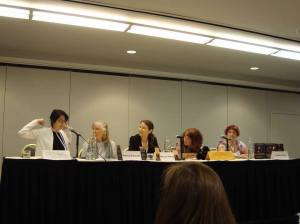
Putting the Her in History panel. Photo by Jessica Knauss.
Next was “Putting the ‘Her’ in History” with Patricia Bracewell, Rebecca Kanner, Mary Sharratt, and moderator Stephanie Lehmann. I was somehow magically added to this one a few months ago and I’m so glad it happened. First of all, I love Patricia Bracewell and Mary Sharatt as authors. Okay, I love Patricia Bracewell in every respect. I like to think of her as one of my writing idols. Needless to say, I was humbled and thrilled to be on this panel. Again, we were a group of well-spoken, intelligent women with no shortage of opinions and more than enough moxie to voice them. As Patricia Bracewell wrote in her blog post reflecting on the conference,”I can only tell you that my fellow panelists were passionate and eloquent about the roles of women throughout history, about the definition of POWER, and the difficulties that historical novelists face in bringing all-but-forgotten women to life.” We must have gotten rather feministic without realizing it, because when the panel started, there were four or five men in the audience; by the time it was over, there were none left. Oops. Sorry guys. We really meant no disrespect. But our message was received. I’ve seen the panel called the best of the conference on several wrap-up blogs like this one and Jessica Knauss said she thought we “had possibly the best energy of any of the panels.”
My koffee klatch was an “ask me anything” style open forum on being an indie author. About 25 people showed up and it was a rapid-fire hour. I barely stopped talking to catch my breath the whole time. Luckily, there were a few other experienced indie authors in the room (hi Lars!) so when I didn’t know the answer (like on KDP select, for example) they were able to fill in for me. Several people told me they really enjoyed it and learned a lot, so I can’t ask for more than that!
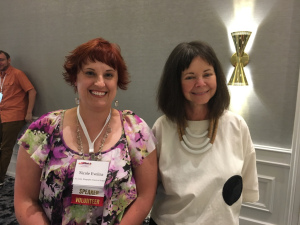
Lookie! I got to meet Geraldine Brooks!
The guests of honor, Pulitzer Prize-winner Geraldine Brooks (March, People of the Book, Caleb’s Crossing, The Golden Chord, Year of Wonders) and David Ebershoff (The Danish Girl, The 19th Wife, Pasadena). I have been a huge fan of Geraldine Brooks’ writing for years, so it was a dream come true to get to hear her speak. I love that she said she “looks for the stories that are too crazy to be believed” as the basis for her fiction. Finding those is one of my favorite parts of research (Victoria’s family, anyone?) and even if readers don’t believe them, they are things that need to be told. A woman after my own heart, Geraldine gave my favorite quote from the whole event when reflecting on her time and experiences as a war correspondent in the Middle East: “In societies where women are publicly silenced, they find ways to wield private power.”
I had never heard of David before he spoke and I wasn’t expecting to be interested in, much less bowled over by, his speech. But I was captivated. He spoke so eloquently of the life of Lili Elbe, a pioneer in the transgender movement, who was the inspiration for his book The Danish Girl. His speech helped me understand transgender issues a little better and I actually teared up when he talked about Paramount quietly replacing the long-lost headstone on Lili’s grave.

Hooch Through History.
And what would a conference be without extra-circular activities? The first was Hooch Through History, a multi-flight alcohol tasting event that was accompanied by a well-researched presentation about what drinks were popular at different times in history and why. We had mead (which I’ve had before and find way too sweet), mulled wine (which I am very familiar with due to my German/Austrian heritage -YUM!), two kinds of gin (the first, which was an older type was kind of okay, but the second tasted like pine trees), absinthe (which tastes and smells like black licorice – all kinds of wrong) and a bellini (which was my favorite drink of the night). I knew some of the history from my own research, but it was fun to learn more and taste with my friends. It was a unanimous opinion in the sold-out room that this should be an annual event.

Stephanie Carroll and I at the masked ball.
On the final night of the conference there was Hellfire at HNS, the first ever after party. It was so much much! It was a masquerade ball, and even though they gave out free domino masks, I bought a fancy bejeweled mask to wear, as did a few other people. You could choose from two activities: learning Regency dance or learning to play whist. I had major blisters on my feet from the stupid shoes I wore the night before, so dancing was out, but luckily I love playing cards. I can’t say I fully understand whist yet, but I think I have the basics down and my partner and I won, so there is that. I had a really, really good time and I hope they do something like this again in 2019.
My new discovery from this conference is author Kate Forsyth (Bitter Greens). I saw her on a panel on Myth, Magic, and Fairy Tales in Historical Fiction. She also spellbound the crowd with recitation of the fairy tale Tam Lin (click the link to watch my shaky video). I fell in love with her. She mentioned on the panel that she has a PhD in fairy tales (how awesome is that?) and that she’s written 40 books in 20 years. As soon as I heard that, I realized that is my new goal! (The books rewritten part; though the PhD would be cool too.)
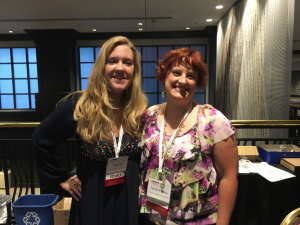
Jenny Q. and I
Oh, and if that wasn’t enough, I met my lovely cover designer, Jenny Q., in person for the first time!
Next year the conference is in Scotland. I really wish I could go, but unless things change that isn’t going to happen. So I’m already looking forward to 2019. I’m considering being on the board, so we’ll see where that goes!
Advertisements Share this:- More

